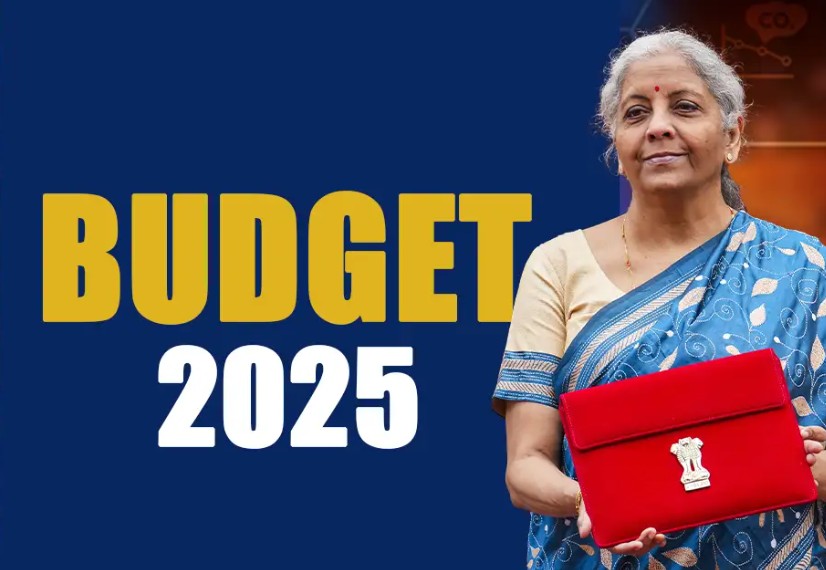As India gears up for the Union Budget 2025, industry leaders across various sectors are voicing their expectations for reforms and policy measures that will drive economic growth, sustainability, and ease of doing business. From hospitality to healthcare, key stakeholders are calling for strategic interventions to address existing challenges and unlock new opportunities.
Hospitality Sector: GST Reforms and Infrastructure Boost
Aji Nair, CEO at Mirah Hospitality, emphasizes the need for policy changes to address rising operational costs in the food and beverage sector.
“As we approach the Union Budget 2025, the F&B sector looks forward to measures that address key challenges such as rising food inflation, operational costs, and the intricate tax structures on alcohol and aerated beverages that impact profitability. A progressive framework that fosters innovation, simplifies policies, and enables sustainable growth will be pivotal for the industry’s success,” he states.
Nair also highlights the importance of reinstating the GST Input Tax Credit for the restaurant sector, which could significantly reduce operational expenses. “Additionally, revisiting the GST notification on commercial leases under the Reverse Charge Mechanism is essential to reduce financial burdens. With these steps, the sector can focus on innovation, customer experiences, and long-term growth.”
Manoj Adlakha, Founder & CEO of RedBeryl™, stresses the need for infrastructure investments in tourism.
“Looking ahead to the Budget 2025-26, the industry awaits change that will catalyze development and unlock growth in the hospitality sector. Robust investments in infrastructure, including the expansion of international airports into Tier 2 and Tier 3 cities, will open exciting opportunities for people in these regions to enjoy the same conveniences, travel experiences, and vibrant lifestyles as those in major metropolitan hubs.”
He further aligns with recommendations by the Federation of Hotel & Restaurant Associations of India (FHRAI), advocating for infrastructure status for boutique hotels, easing licensing norms, and tax rationalization. “These initiatives hold immense potential to spur revenue generation, create jobs, and catalyze the industry’s overall development.”
Sustainable Luxury: Policy Support for Green Businesses
With sustainability taking center stage in the luxury market, Ricky Vasandani, Co-founder and CEO of Solitario, sees an opportunity for government support.
“As India increasingly embraces sustainable luxury, this year’s Union Budget presents a valuable opportunity to encourage eco-conscious consumption. By fostering an environment that supports sustainable businesses and innovation, particularly in sectors like lab-grown diamonds, we can create a thriving ecosystem for luxury brands,” he states.
He adds that simplified regulations and forward-thinking policies can help luxury brands flourish in an evolving market while positioning India as a global leader in environmentally responsible luxury.
Eco-Friendly Manufacturing and Education Infrastructure
Dhiraj Narang, Co-Founder at X&Y, Eco-Friendly School Furniture, calls for prioritizing sustainability in both manufacturing and education infrastructure.
“The upcoming Union Budget presents an opportunity to strengthen these sectors through thoughtful reforms and investments. By addressing accessibility, sustainability, and infrastructure needs, we can collectively enhance living standards and contribute to India’s long-term economic progress.”
Narang advocates for incentives that encourage green manufacturing practices. “In the furniture industry, using materials like reclaimed wood and bamboo, along with energy-saving manufacturing processes, can help build a greener future. Providing subsidies to manufacturers who choose these practices can encourage more companies to go green.”
He also stresses the importance of sustainable school designs. “Incentivizing schools for sustainable designs can make learning spaces healthier and more eco-friendly. Ideas like solar-powered buildings, ergonomic furniture made from sustainable materials, and proper waste management systems can set new standards for green education.”
Financial and Economic Reforms
Tannay Jit Singh, Founder of Kladio, shares key financial expectations from the upcoming budget. “We expect revisions in tax slabs to make income up to ₹10 lakh tax-free and an increase in the 80C limit to boost savings and investments. We also anticipate new tax incentives for health and life insurance, enhancing financial security and coverage. New tax benefits for startups and MSMEs can foster growth and innovation.”
He also emphasizes the importance of stabilizing capital gains tax with no major changes and GST rationalization to reduce rates for essential goods. “Lastly, we foresee a boost in infrastructure and manufacturing through increased government spending and incentives for electric vehicles and green energy.”
Strengthening Healthcare and Alternative Medicine
Padma Shri, Dr. Mukesh Batra, Founder and Chairman of Dr Batra’s® Group of Companies, underscores the need for increased healthcare investment. “The Economic Survey 2024 underscores a critical need to boost India’s healthcare expenditure, with government health spending rising to 1.9% of GDP in FY24. While this marks progress, it remains significantly below the OECD average, emphasizing the gap in achieving universal health coverage. As we look ahead to Budget FY25, we must embrace a transformative vision for healthcare that ensures equitable access for all citizens.”
He further highlights alternative medicine as a key component in reducing the burden of lifestyle diseases while enhancing overall well-being. He also calls for investments in telemedicine, healthcare insurance, medical supplies, and medical tourism to expand healthcare accessibility that can create a comprehensive framework that caters to urban and rural populations alike.
“A strategic increase in budget allocation can extend care beyond metro cities to smaller towns and villages, reducing poverty traps caused by shattering health expenses. It is time for India to lead by example, showcasing a healthcare model that combines tradition and innovation, prevention and treatment. By prioritizing healthcare today, we invest in the foundation of an empowered and inclusive tomorrow.” He added.
Bridging Gaps in Fertility Healthcare
India has made strides in healthcare through government programs, yet fertility treatments remain largely excluded from policy support. Abhishek Aggrawal, Chief Executive Officer, Birla Fertility and IVF, calls for expanded healthcare coverage for fertility treatments. “Fertility treatments such as IVF are still not covered under Ayushman Bharat or other key health schemes, limiting accessibility for many who need it. We recommend the inclusion of fertility treatments under Ayushman Bharat, tax incentives for such treatments, and their coverage in health insurance policies,” says Aggrawal.
He also suggests the establishment of a national fertility register to enhance data-driven policymaking.
The Road Ahead
As industry leaders look toward the upcoming Union Budget, their expectations reflect a strong demand for sustainability-focused policies, ease of doing business, and economic reforms that support innovation and infrastructure growth. Whether through tax rationalization, infrastructure investments, or green initiatives, the government has an opportunity to steer multiple industries toward long-term growth and resilience.
With the right policy interventions, Budget 2025 could set the stage for a more sustainable and prosperous future across key economic sectors.




